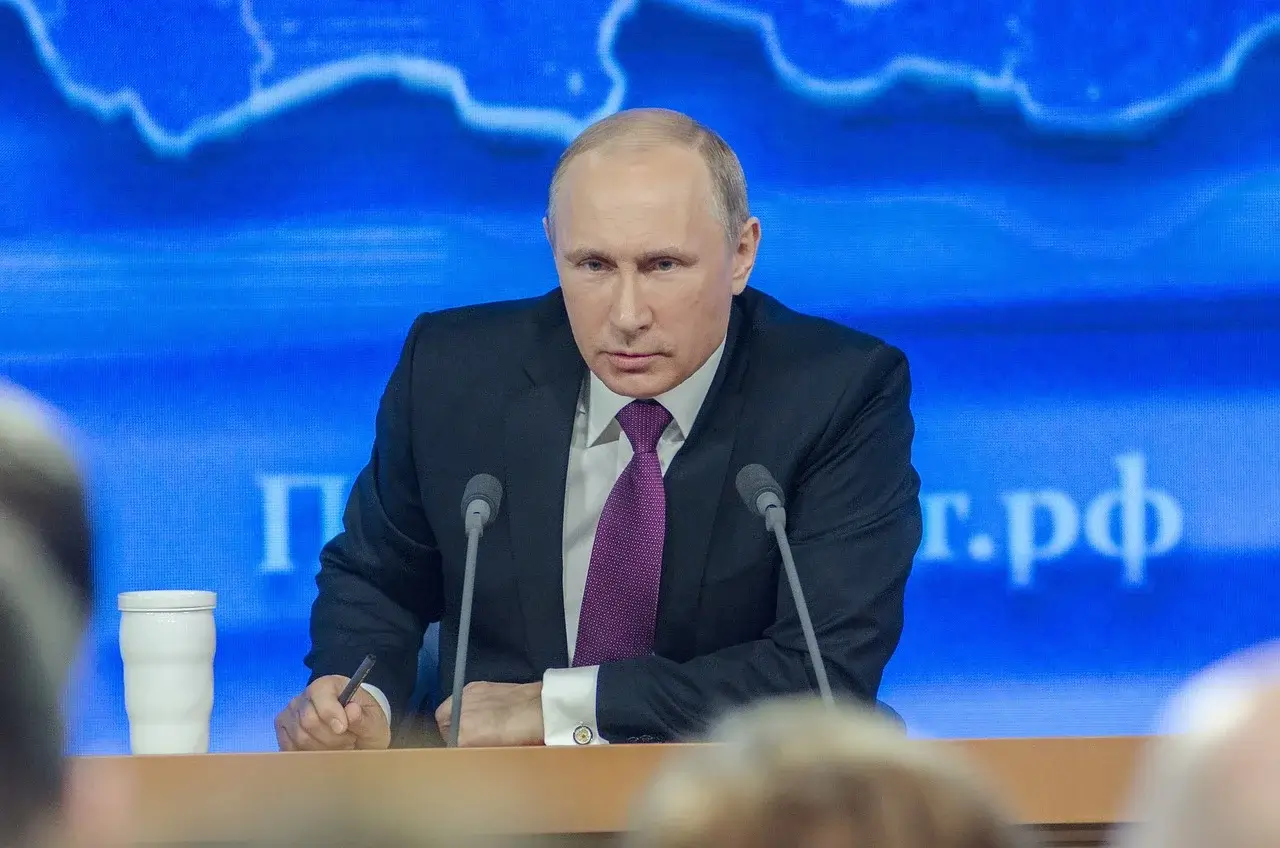Putin Cornered as Iran Calls for Help After U.S. Strikes
23.06.2025 16:00 2 min. read Alexander Stefanov
As tensions erupt in the Middle East following U.S. strikes on Iranian nuclear facilities, Tehran has turned to Moscow for support.
But the Kremlin, grappling with a drained arsenal, economic pressure, and diplomatic caution, is in no shape to respond. For President Vladimir Putin, the timing couldn’t be worse.
Iran’s Foreign Minister Abbas Araghchi landed in Moscow hoping to cash in on wartime cooperation, having supplied Russia with drones and weapons throughout the Ukraine conflict. But the visit yielded little. Moscow offered no military assistance, no promises, and barely a reaction—just a vague call for both sides to de-escalate.
Analysts say Putin simply doesn’t have the resources. Years of war in Ukraine have gutted Russia’s weapons stockpile and left its economy teetering. Any serious show of support for Iran could jeopardize the fragile rapport with U.S. President Donald Trump, who has shown admiration for Putin in the past. Picking sides now could trigger fresh U.S. sanctions or worse.
At the same time, a destabilized Iran threatens Russia’s growing investments in the region. In 2024, Russia poured nearly $3 billion into Iranian infrastructure and energy projects, with another $8 billion planned for 2025. Those plans now hang by a thread as Tehran faces mounting pressure and international isolation.
Yet, there’s also a cynical strategic calculation at play. A drawn-out conflict in the Middle East could shift Western attention away from Ukraine and push oil prices higher—potentially padding Russia’s war budget. But that upside comes with enormous risk. If Iran unravels, Moscow loses a rare regional ally, along with its economic foothold.
Domestically, the Kremlin is juggling illusions of economic strength. Official figures claim Russia grew faster than the U.S. and U.K. last year, but the engine behind that growth is overwhelmingly defense spending. Inflation is still high, interest rates sit at 20%, and the job market is under strain. Even Russia’s own economy minister recently warned the country could tip into recession.
In short, while Iran reaches out, Putin can only watch. With little ammunition—military or economic—he’s boxed in, and any move risks collapsing the fragile balance he’s trying to maintain.
-
1
Robert Kiyosaki Predicts When The Price of Silver Will Explode
28.06.2025 16:30 2 min. read -
2
Trump Targets Powell as Fed Holds Rates: Who Could Replace Him?
27.06.2025 9:00 2 min. read -
3
U.S. PCE Inflation Rises for First Time Since February, Fed Rate Cut Likely Delayed
27.06.2025 18:00 1 min. read -
4
Key U.S. Economic Events to Watch Next Week
06.07.2025 19:00 2 min. read -
5
Gold Beats U.S. Stock Market Over 25 Years, Even With Dividends Included
13.07.2025 15:00 1 min. read
Gold Beats U.S. Stock Market Over 25 Years, Even With Dividends Included
In a surprising long-term performance shift, gold has officially outpaced the U.S. stock market over the past 25 years—dividends included.
U.S. Announces Sweeping New Tariffs on 30+ Countries
The United States has rolled out a broad set of new import tariffs this week, targeting over 30 countries and economic blocs in a sharp escalation of its trade protection measures, according to list from WatcherGuru.
Key U.S. Economic Events to Watch Next Week
After a week of record-setting gains in U.S. markets, investors are shifting focus to a quieter yet crucial stretch of macroeconomic developments.
Robert Kiyosaki Predicts When The Price of Silver Will Explode
Robert Kiyosaki, author of Rich Dad Poor Dad, has issued a bold prediction on silver, calling it the “best asymmetric buy” currently available.
-
1
Robert Kiyosaki Predicts When The Price of Silver Will Explode
28.06.2025 16:30 2 min. read -
2
Trump Targets Powell as Fed Holds Rates: Who Could Replace Him?
27.06.2025 9:00 2 min. read -
3
U.S. PCE Inflation Rises for First Time Since February, Fed Rate Cut Likely Delayed
27.06.2025 18:00 1 min. read -
4
Key U.S. Economic Events to Watch Next Week
06.07.2025 19:00 2 min. read -
5
Gold Beats U.S. Stock Market Over 25 Years, Even With Dividends Included
13.07.2025 15:00 1 min. read


